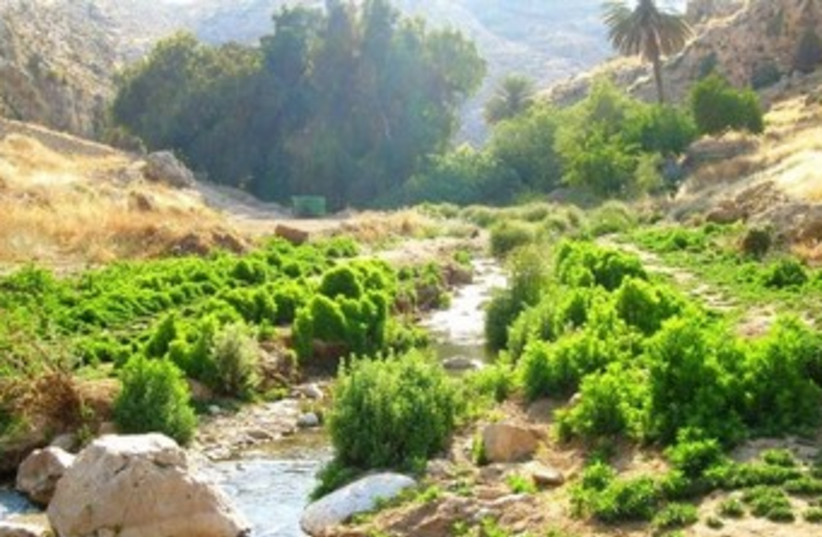The 30 km. pipeline, approved after four years of planning, will carry 2.5–3.5 million cubic meters a year to farmers in the Jordan Valley • “Water is a precious resource – but not as rare as trust”
Published: AUGUST 17, 2022
Israel’s Civil Administration has issued a building permit to the Palestinian Water Authority (PWA) to build a trunk line, which will be used to transport treated wastewater for agricultural use from the El Bireh Treatment Plant, near Ramallah, to Palestinian farmers in the Jericho Valley.
The 30-kilometer pipeline will carry 2.5 – 3.5 million cubic meters a year of much-needed high-quality agricultural water to farmers in the Jordan Valley – a welcome change, as the El Bireh wastewater treatment plant has poured roughly three million c.m. of high-quality treated water that is often contaminated with raw sewage from a different source.
Due to the gradual deterioration of existing water transfer and treatment infrastructure in the Jordan Valley and the rising impact of climate change, discussions on how to effectively transfer safer water to the Jordan Valley have been ongoing for years.
“The treated wastewater and the un-treated wastewater are affecting the nature reserve, polluting the springs and preventing visitors from enjoying the reserve. Diverting the water in a pipeline will resolve the problem and save the nature reserve.”
Ilan Cohen
“The treated wastewater and the un-treated wastewater are affecting the nature reserve, polluting the springs and preventing visitors from enjoying the reserve,” according to Ilan Cohen, Manager of the Nahal Prat (Wadi Qelt) Nature Reserve. “Diverting the water in a pipeline will resolve the problem and save the nature reserve.”
Nahal Prat 370 (credit: Courtesy)
Prior obstacles to Israeli-Palestinian water cooperation
The successful negotiation between the Israeli Civil Administration and the PWA was facilitated by the Arava Institute – a leading academic and research institution in Israel that advances cross-border environmental cooperation amid stark political conflict.
While the authority and the administration previously disagreed about the Israeli military maintaining control over the route of a proposed pipeline through Area C of the West Bank, the Arava Institute and its Palestinian partner Damour for Community Development, included numerous field trips into the West Bank to view possible routes.
THE ARAVA INSTITUTE hired Palestinian water consultants, and engaged a Palestinian engineering firm to create detailed building plans. After four years of meetings, field studies, reports and designs, final plans were submitted and approved, and the building permit was issued last week.
“What we had to do is use research and facts to build trust between two parties who were not initially willing to listen to each other,” says Amr Awadallah, a supporter of the Arava Institute. “The resulting cooperation is groundbreaking, and it shows how applied environmental diplomacy can solve some of the most universal climate change issues that impact everyone regardless of geography or nationality.”
“Water is a precious resource. However, it’s not as rare a resource as trust,” according to Arava Executive Director Dr. Tareq Abu Hamed. “Grounded in relationships and trust, this work demonstrates that regional cooperation is possible and, in fact, necessary to address environmental challenges, which grow with the impact of climate change.
“Agreements such as this will support the sustainability of the region and ensure these farmers do not become climate refugees,” he said.

